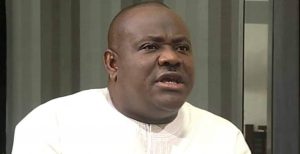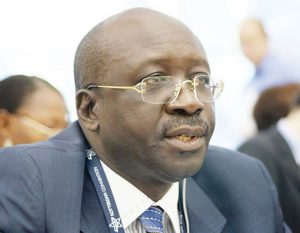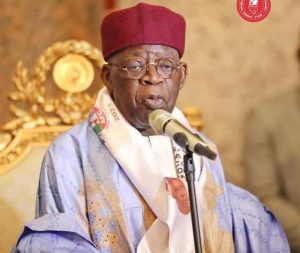Aminu Habibu Jahun
Each of the four leading political parties (PDP, APC, the Labour Party and NNPP) carries a burden which could pull it down in the 2023 presidential election and for which damage control is required to douse the potentially injurious impacts. And if damage control fails, then each party has to bear the brunt proportionate to its failure. These burdens vary in scope and intensity with low, medium and negative electoral exposures; with regional and spillover ramifications. If these burdens have arisen to advance the interests of ordinary voters, then they would have been worthwhile burdens. Unfortunately, most of the significant burdens have been induced by egoistical dispositions of politicians which, at times, divert parties from principled courses and later metamorphose into big challenges. Whilst others are traceable to historical prejudices, the chickens have come home to roost for negative or enemy profiling and ethnically driven inquisitions, making every vote to count hopefully but in favour of regional and ethnic divisions.

“Rebel” leader, Gov Nyesom Wike of Rivers State
Since it lost out and was ousted from power in 2015, the PDP has lacked an effective party leader whose command all faithless and faithful members obey. Its governors have filled the void in their own idiosyncratic manner with national party organs at their mercy. Despite being set to reap from the shortcomings of the ruling party, PDP is engulfed in an intractable Vice-Presidential selection crisis from its vote basket, which is traceable to an earlier firm grip of the party by a powerful anti-zoning lobby (with Governor Wike as the arrowhead) which made the party to jettison its zoning policy, with Uche Secondus as its first casualty. Since the national mood seems to be for change, the Northern Mullahs mustn’t be allowed the exclusive right to produce the party’s presidential candidate; the applecart had to be upset to pave way for Southern presidential aspirations. If the party could and had stuck to its guns and upheld its zoning policy, Wike couldn’t have contested the presidential primaries, with a runner up status which gives him an entitlement illusion to the Vice-Presidential slot or being extraordinarily pissed off for its loss as to, in an uncontrollable rage, be ready to pull down the party’s roof with Atiku Abubakar as an intended casualty and Senator Ayu as a collateral damage.

Dr. Iyorchia Ayu
Convinced by his ability to overcome major obstacles, Atiku Abubakar’s confidence in horse-tradings to weather any storm has, however, found in Wike an uneasy nut to crack; possibly being prodded by those outside the party with a score to settle with the party’s presidential candidate. Retrospectively, if Atiku Abubakar had known, he wouldn’t have rejected the recommendation of his party’s Vice-Presidential selection committee which was rumuored to have recommended Wike but whom Atiku Abubakar decided against. The Wike burden, a rebellion in the South-South, the most consistently highest PDP voting zone since 1999, is a high impact electoral risk, which could spill beyond the zone.
Despite the salience of identity mobilization in plural societies, a lot of voters vote according to their political choices but in the 2023 polls, identity mobilization could sway a lot to vote according to religious considerations. The Church no more than the Mosque, has never been more passionately engaged with elections than the coming presidential polls; with the stance of the former underscored by the APC’s same religion ticket. Unfortunately despite being in power, the party lacks the type of firm leadership PDP enjoyed from 1999 to 2015 which could dictate against same religion ticket. Against hardened regional, ethnic and religious cleavages in the nation, it is indecent politics to field a same religion presidential ticket, which remains its big burden.
Whether or not Senator Shettima is the presidential running mate, the most that he could do would be delivered by his successor, Babagana Zulum and probably Maimala Buni: APC victory in an APC enclave: the Kanuri axis of the Northeast. And that wouldn’t change if either Dogara or Bagoro were the running mate. And whatever identity benefit that could be mobilized by Shettima’s candidature, it would be satisfactorily discharged by the identity trait of his principal. But political scheming and egoistical dispositions prevailed; the triumph of meritocracy over inclusive politics and concerns; and the inevitable reproduction of animosities and angst in the party and its corrosive effects in the body politic.

Peter Obi of the Labour Party
Unlike in the 2003 presidential polls, when the late lkemba Odumegwu Ojukwu of APGA garnered only 34% of the presidential votes in the Southeast, far behind PDP’s Olusegun Obasanjo’s 54%, Ndigbo now smarting from their failure to field a presidential candidate in the dominant parties, could rally round Peter Obi’s presidential bid. But this support would have to contend with the Labour Party’s albatross, which is associational: its adopted candidate’s gubernatorial inquisitions against Northerners in Anambra State where Northerners occupying menial jobs were forcibly repatriated to the North and his much touted identification tags for them have not been forgotten, even if they would be forgiven and, at the right time, they could join issues with their votes. And the historical prejudices which underscored Obi’s maltreatment of Northerners are at play again. Some elements are set to Ipobinize and Biafranize his presidential aspiration by threatening other Nigerians unfavorably disposed to his bid. This is a major burden for the party and candidate.

Asiwaju Bola Ahmed Tinubu of the APC
Senator lbrahim Shekarau was driven to the NNPP by political scheming and egoistical considerations in APC. Convinced of his relative permanence in the party, due to its senatorial ticket assigned to him, they deemed it unnecessary to fulfill all the terms of his entry into the party, thinking that his hands were tied and there was no surprise that he could pull. Alas, they have forgotten that chameleonic political traits are not the monopoly of anyone. As his entry increased its political visibility, his exit to the PDP has dimmed its electoral value in its stronghold. Failure to discharge its agreement terms is now its heavy burden, and the chickens have come home to roast.
Therefore to each party’s burden, there is a corresponding electoral risk; with an appropriate response to each: mitigation if its impact would be high or retention if parties can cope up with their electoral outcomes. The ruling party and the major opposition party seems to have decided on retention of their burdens, applying damage control techniques to dampen their effects whilst the Labour Party and its presidential candidate live in denial of the recent past and decided on retention of their burden which is unhelpful to them. The NNPP is pitifully managing the comeuppance of its broken promises whilst all of them are unmindful of the fact that it is the electorate and those who prod them along and no one else who decides which burden is unacceptable, forgivable and can be sanctioned in electoral terms.
The author wrote from Dutse in Jigawa State of Nigeria




























